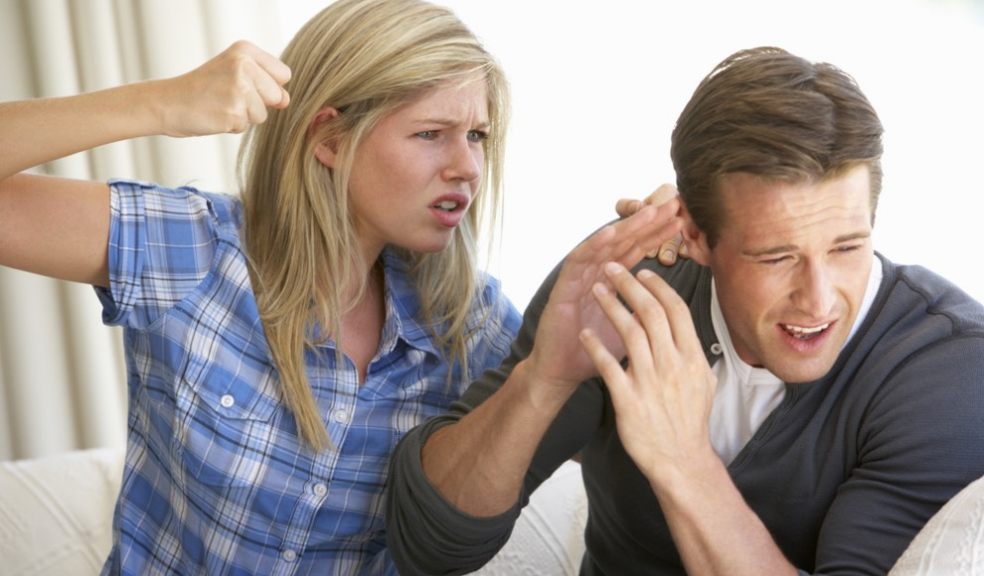
Training bystanders to intervene will help to prevent domestic violence and abuse, study shows
Empowering people to intervene when they witness unacceptable behaviour can help to prevent domestic violence and abuse, a new study has found.
Specific training for bystanders makes them “significantly” more confident to take action when they see or hear wrongdoing related to domestic abuse in their community, according to the research.
A total of 81 per cent of participants reported being more likely to intervene when they saw wrongdoing after the training, this increased to 89 per cent four months later.
This is the first academic study to examine a bystander programme as a way to tackle domestic violence and abuse in UK communities. The study, published in the journal BMC Public Health, comes at a critical moment: during the current coronavirus lockdown there has been a sharp rise in calls to domestic abuse helplines.
Similar training has been used in universities in the UK and experts who developed the new programme hope bystander training will now play a key role in domestic violence prevention work across the country.
The training, entitled Active Bystander Communities, was led by Dr Rachel Fenton at the University of Exeter and Alexa Gainsbury at Public Health England, and is a collaboration between University of Exeter Law School, Public Health England, Devon County Council, Bristol County Council, Splitz and the Hollie Gazzard Trust. It was piloted with 70 people in Exeter, Torquay and Gloucester.
Active Bystander Communities, was designed to give people the knowledge and skills they need to be ‘active bystanders’ and intervene positively in potentially harmful situations. It was delivered in three two hour sessions by experienced facilitators. Participants learned how to notice harmful behaviour alongside developing the skills to be able to intervene safely and effectively.
Surveys of participants immediately after the training showed a significant increase in confidence and intent to take action as well as a significant improvement in their ability to spot and reject myths about domestic abuse. A total of 87 per cent of people who took part in the training were less likely to believe myths about domestic abuse afterwards. A total of 84 per cent of participants said they felt more confident about intervening following the training.
Researchers found further improvement four months after training when participants had had the opportunity to take their learning out into their communities and take action.
Dr Fenton said: “Bystander intervention is about empowering all members of the community to speak up and challenge gender inequality and the drivers of domestic abuse in a safe and situation-appropriate way. It’s about helping people to find their own way to make an impact and make a difference. We hope others will now use our programme.
“People in the community are ideally placed respond to problematic behaviours and support individuals who are experiencing domestic violence and abuse because they have the relationships, insights and opportunities to make a real difference.
“During the coronavirus pandemic people can still be a bystander by keeping in touch with friends and neighbours, and signposting to services and reporting particularly if they think others are at risk of domestic violence and abuse.”
One participant said: “I found the courage to voice my ideas, ideas that previously I was able to share with friends and family, but never with strangers on social media, and I did it in spite of how scared I was of the possible reactions. I just knew that challenging certain behaviours could make the difference, that we can tackle big problems by performing small acts, and therefore could not keep silent.”
Another participant said: “I have felt empowered by the bystander intervention to feel confident to intervene and show my disapproval at sexist and toxic behaviours towards women, potentially within a male dominated environment in which I work
“This has given me an insight into different ways to challenge domestic abuse and also made me aware of thinking of the impact my actions could have if I challenged behaviour for the victim. I now feel I have more tools to help me use appropriate responses that will support the victim."
Ms Gainsbury at Public Health England said: “Preventing violence is everyone’s business and we are all aware of the devastating impact domestic abuse has on individuals, families and communities. Whilst we are clear that domestic violence and abuse should never happen, it is not always clear what we can do to stop it. The Active Bystander Communities is at the forefront of developing the evidence base for bystander interventions in the UK.
“Our follow-up research has found participants have been quick to put their training into action and have already carried out a wide range of bystander interventions from calling out sexist behaviour to supporting victims of domestic abuse within their communities.
“From spreading the word that bystanders can make a difference to calling out harmful behaviours they see in everyday life and being a source of support to those experiencing abuse, the range of ways in which participants have enacted interventions since undertaking the training has been inspirational.”
Simon Kitchen, Head of Communities at Devon County Council said: “The Council has been pleased to be part of the development and learning from this innovative and challenging project. Ending domestic abuse and sexual violence in Devon is a longstanding ambition for the Council and our key partners and bystander intervention offers an important tool for people and communities to challenge thinking, behaviour and attitudes at an early stage. I think it can also teach us about being better, kinder and informed citizens, and personally has given me tools and knowledge to be a better father, partner, colleague and friend.”
Dame Vera Baird QC victims’ commissioner for England and Wales said: “I had the pleasure of helping to launch active bystander communities at Exeter City football club in October of last year.
“It had obvious potential to influence bystanders better to recognise problematic attitudes, beliefs and behaviours around violence against women. It also empowers them to intervene when they see harmful things occurring. Interestingly, participants who heard discriminatory comments made by others found that if they spoke out many others listening shared their concerns. The point is to utter these concerns, empower themselves and each other and, one hopes, at the same persuade the person they are critical of that their attitudes are unacceptable.
“It is excellent to see that the evaluation is as good now as the potential was then. I congratulate the University of Exeter Law School and Public Health England on this endeavour. I would enthusiastically recommend that other universities and organisations take on bystander projects.”
The development of Active Bystander Communities was commissioned by Bristol City Council. Evaluation of the intervention was carried out by the University of Exeter Law School and Public Health England.
If you are interested in delivering or commissioning the programme, or in taking part, please contact the project lead R.Fenton@exeter.ac.uk.
Helpful advice if you are a victim of domestic violence and abuse can be found at: https://www.gov.uk/guidance/domestic-abuse-how-to-get-help?gclid=EAIaIQobChMImYiR-9HF6QIVnIBQBh3E2A2tEAAYASAAEgIHuvD_BwE&gclsrc=aw.ds













